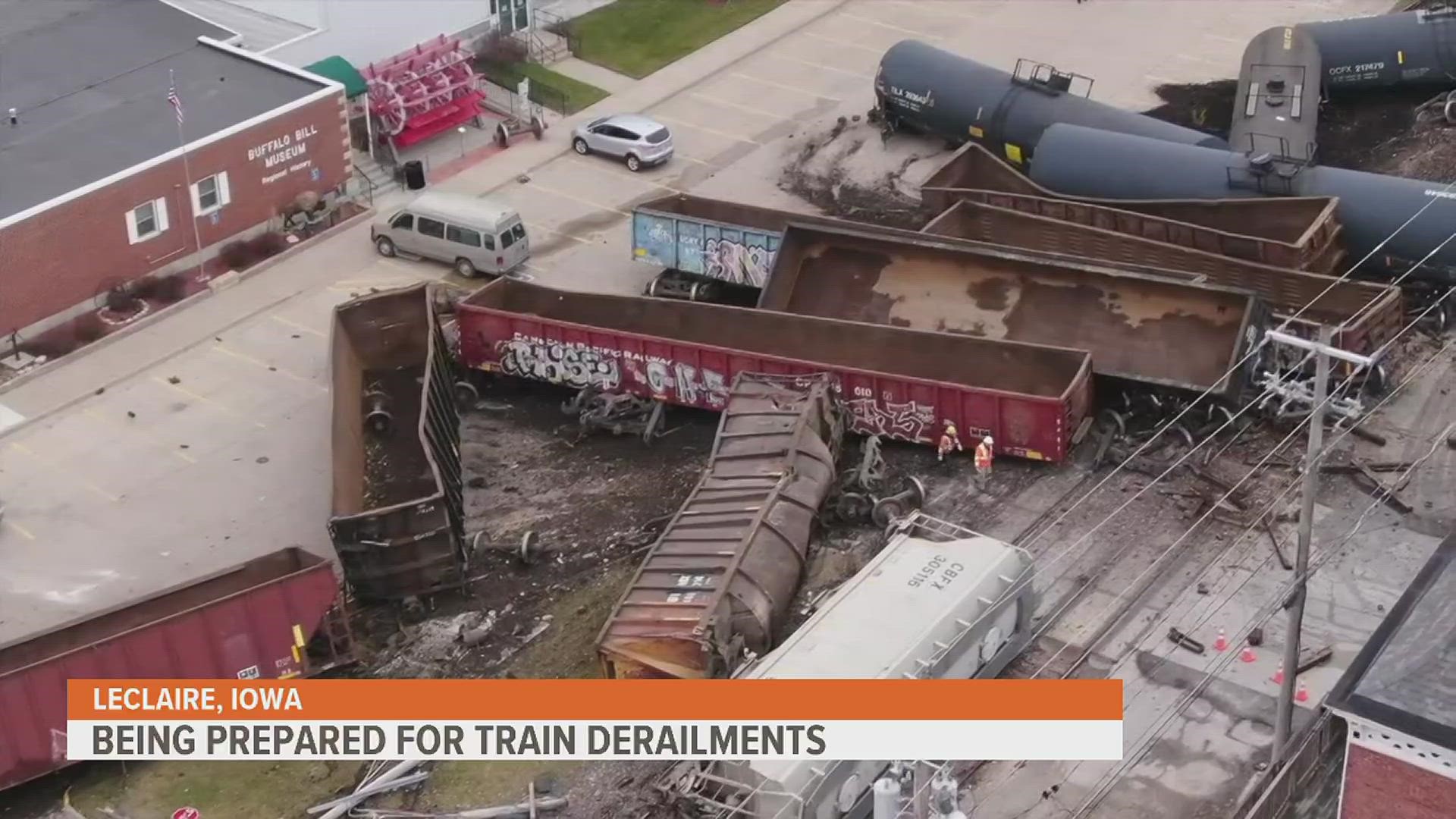LE CLAIRE, Iowa — It's been three weeks since 50 train cars derailed in a small village in Ohio near the Pennsylvania state line, forcing residents to evacuate the area and sparking investigations into the Norfolk Southern Railway.
Back here in the Quad Cities, first responders told News 8's Jonathan Fong that they are as ready as they can be for something like that to happen here.
In January 2020, a train derailment in LeClaire sent 24 train cars flying into the riverfront parking lot. That accident was believed to be caused by a broken rail. None of the cars went into the Mississippi River, however, there were concerns that chemicals in the cars would leak into the water source.
First responders were able to contain it before that happened.
One of those crews was the Scott County Emergency Management Agency. Deputy Director Brian Payne said the team's role is mainly supportive, but it's still critical for cleanup operations.
Payne's team focuses on public communication and coordination. In a derailment or hazmat situation, it would send out emergency messages on evacuation or sheltering similar to an Amber Alert. The team also focuses on getting supplies and equipment to first responders.
"We're there to do whatever we can," Payne said. "Help them, whether that's getting them food and water, or porta potties on a big scene like that, where they're going to be there multiple days or getting them new, different hazmat teams from across the nation or putting in federal requests or other state-to-state requests for that assistance."
The team regularly trains with the Environmental Protection Agency and other federal organizations to prepare for these emergencies.
On the other side of the Mississippi, Silvis Fire Chief John Winters told News 8 that his crew's role is to help with rescue, evacuation and hazmat operations. In the event of a large derailment or chemical spill, the department can call on special teams through MABAS, the Mutual Aid Box Alarm System.
The fire department's first priority is to save lives immediately, but Winters said they also have equipment and training to help prevent damage to the environment.
"As far as the waterways go, we do have ways to try to contain certain products," said Winters. "If they float, we will put booms out, we will put what are called 'pigs' out, to try to soak up that that product that's loose. The more we can contain, the easier it is for the environmental companies to come in and do a cleanup."

